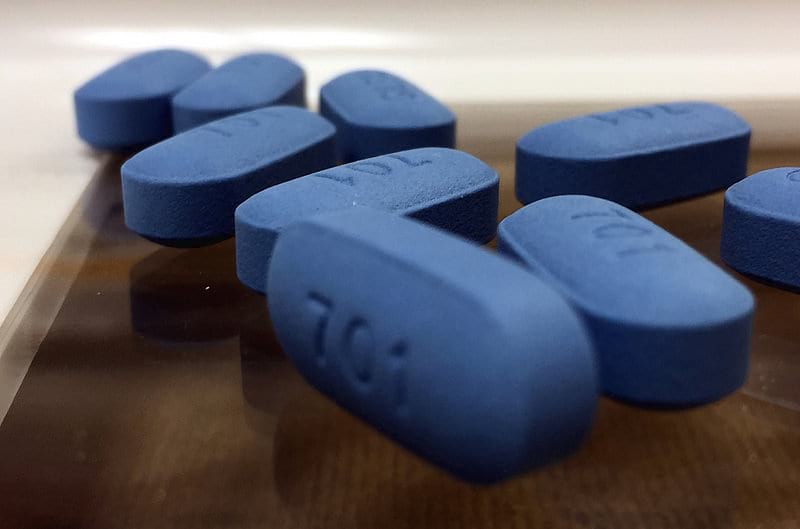Should You Have a Gay Doctor?

Like many recent graduates who test the uncertain waters of various career paths, over the past two years following my college graduation I have cycled through 5 different employers. Although these experiences have varied by and large, one constant fortunately remained – they all offered health insurance plans for their employees. Unfortunately, every job switch included a change of health insurance provider, requiring me to seek out a new primary care physician and restart the process of building doctor-patient rapport.
During my college years I was fortunate enough to see a gay doctor – a physician who specializes in the common and specific health needs of gay men. He was located in West Hollywood, savvy and up-to-date on HIV-prevention methods that had recently been made available to the general public (PrEP), placed importance on mental and holistic health, and altogether made me feel safe and certain given his expertise. I was also lucky that my college offered an excellent PPO plan, so when my first job out of college extended a California HMO plan that identified my gay doctor as “out of network,” I was disappointed and nervous that I wouldn’t receive the same level of care and specialty with a new provider.

Unfortunately, I was right. Although I did my best to seek out doctors who were familiar with the health needs of gay men, these providers were not always accepting new patients. I found myself settling with doctors who were easy to make appointments with and obtain hassle-free refills of my prescriptions. Among other medications, obtaining monthly refills of my Truvada was a priority for me, and it was convenient that these doctors made it so easy. The downside, however, was that oftentimes these physicians placed little to no stress on routine blood-work and STI tests (typically performed every 3 months for those taking PrEP). I knew that they should have been paying more attention to enforcing these routine check-ups, but I was busy, and at the time I believed their subpar level of medical attention worked to my advantage, saving me time and energy.

This played out as a consistent trend until I recently fell under the care of another fantastic gay doctor. I was reminded of the attention and professionalism I received during my college years – the expertise, specific knowledge of my needs and medications, ability to level with me and reinstate the importance of regular blood-work. As I have gotten older my priorities have shifted as well; I found myself trying to treat my body better, sleep more, drink less, and eat healthier. I soon began to realize the holistic necessity of a primary care physician who offered the level of care that would bring my health full-circle.
I would imagine that my situation is not unlike other young gay men who have bounced around between various doctors as a result of changing jobs, moving to new cities, or being generally dissatisfied with their current level of care. I hope that in sharing these opinions I can bring attention to the need for gay medical expertise, and why this level of care might be right for you.

Some Doctors are Unfamiliar with PrEP Management (TRUVADA)
Even having lived in West Hollywood, a city that has a gay population significantly higher than the rest of the country, I can recall two primary care physicians I saw who did not abide by PrEP (commonly known as Truvada) best practices. Whether they were altogether unfamiliar or simply didn’t care was uncertain to me, however both situations are troubling. Most doctors who prescribe PrEP require patients to obtain routine blood-work and STI tests every three months (a recommendation by large health organizations such as the Center for Disease Control).
I recognized a general disconnect in the level of attention and stress attributed to the importance of these routine check-ups. The doctors I saw who specialized in gay men’s health were excellent about enforcing, reminding, and following-up with these tests, while some of the others either didn’t care or didn’t know to make these happen. Of course, it is partially the patient’s responsibility to take control of their own health, but as a recent college graduate busy managing a social life and navigating several uncertain career paths, I often forgot, and could have benefitted from reminders.

Gay Doctors Stress the Importance of HPV Vaccines
According to WebMD, at least 50% of all sexually active people will become infected with HPV at some point in their lives. While most people experience no symptoms and the body often clears itself of the virus on its own, those who experience symptoms can develop genital warts that, if left untreated, can lead to anal and throat cancer, and cervical cancer in women. Among gay men especially, the development of pre-cancerous and cancerous anal cell growth is of concern for those who have developed or been exposed to HPV.
The first gay doctor I had was knowledgeable enough to recommend Gardasil, a HPV vaccine that protects against the “high-risk” strains of the virus. Although this vaccine is not foolproof and perfect, it is recommended by most medical professionals for anyone under the age of 26 who is at risk for HPV exposure. As I bounced around to new and different doctors here and there after graduating, the majority of providers I saw did not ask if I had formerly received this vaccine, nor did they obtain my charts from this first doctor. I fear that this question is being largely ignored by medical professionals who do not understand the importance of vaccinating and educating young gay men when it comes to HPV.
Understanding LGBT Mental Health
According to Mentalhealthamerica.net, many insurance companies and networks require referrals from primary care physicians to see specialists such as mental health professionals. Although I am sure there are plenty of physicians out there who do not specialize in gay men’s health and can make valuable mental health recommendations and referrals, a doctor who is gay or intimately familiar with the full scope of health needs of gay men will likely have mental health doctors as contacts for referral purposes. Additionally, chances are that if the doctor is providing the level of attention and care in other areas such as PrEP management and appropriate vaccinations, they will generally be more attune to other specialty health needs such as mental health.

On LGBT Health Management
The Atlantic released an article entitled What Doctors Don’t Know About LGBT Health in which they touch on the general need for gay medical expertise. Kristen Eckstrand, a medical professional who specializes in this subject, points out that physicians should not make assumptions about their patients’ health simply based on their sexuality. Simply because an LGBT person is walking into a medical office does not always mean their issue or concern will necessarily be LGBT-related; perhaps they just have the flu or pneumonia.
While I am in agreement that assumptions should have no place in the medical office, I think that there is a need for specialty knowledge when it comes to the prevention of health issues common in gay men, and the management of prevention methods. Do I think this requires a gay doctor, or a physician who is intimately knowledgeable about the health of gay men? Not necessarily. However, I do think that gay men deserve healthcare professionals who are willing and able to do the background research when asked about PrEP (if unfamiliar), provide their patients with adequate upkeep and management, and, most importantly, know when to ask the right questions.
